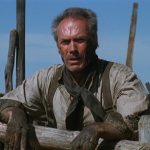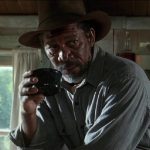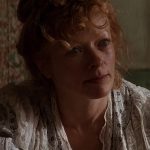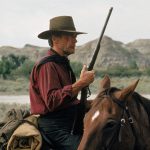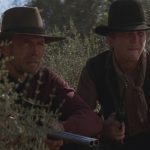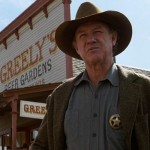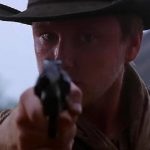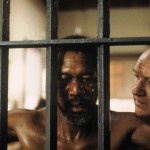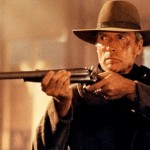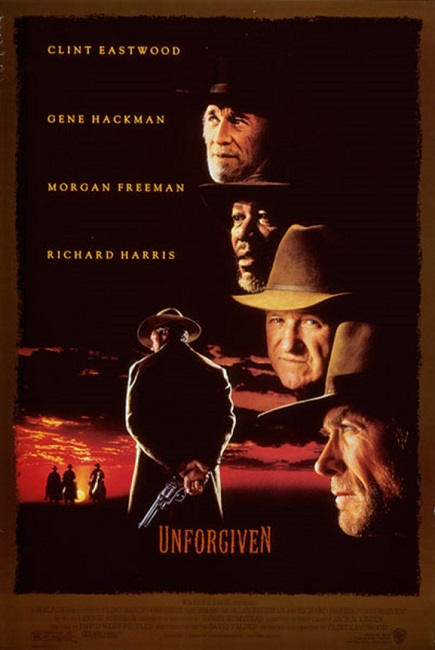
Unforgiven – 1992
Unforgiven was a western starring Clint Eastwood, Gene Hackman and Morgan Freeman. This was the second western to win the prized Best Picture award since Cimmaron in 1931, the other being Dances With Wolves. And I should mention that, as a genre, I have never been a huge fan of westerns.
I should also mention that I have never been a huge fan of Clint Eastwood. I have never actually disliked him, but I have never gone out of my way to see his films. He is a good enough actor who generally knows what kind of role works well for him. As such, he plays very similar characters in most of his movies. This one was no exception. Just change his name and insert him into any number of his other films and he would be right at home.
But, all that being said, this was still a good movie. Hackman and Freeman are always good actors, the supporting cast did a fine job, and I had no problem with anyone’s performance. Even the plot and characters were believable. But if I sound like I am less enthusiastic about the film, I think I am. And I think I know why.
It is because for the first three-quarters or so of the movie, almost nothing happened. The plot just moved so slowly. And to make it all the more sleepy, the music was like a lullaby, reminding me of the beautifully sweet soundtrack to the movie The Princess Bride. The pacing was soft and gentle and un-hurried, which is in great contrast to the final quarter of the film. Then, the action really ramped up into high-gear and it got exciting and engaging.
The film starts out in a whore house in the town of Big Whiskey, Wyoming. A man gets angry with his prostitute, Delilah, played by Anna Levine, and starts to beat her. By the time he is done, he has slashed her face to ribbons with a knife. The town sheriff, Little Bill Daggett, played by Hackman, arrives but does little to the man and his partner. They are not whipped, not put in prison, and not run out of town. As punishment, they are made to pay five horses to the owner of the bar in which the whores reside and do their business. But the women of the whorehouse band together and offer a bounty of $1,000 to anyone who will kill the two cowboys who hurt one of their own.
The Schofield Kid is a young man who looks like he is still in his teens. He actually looked a little bit like Ricky Schroeder. After hearing about the reward, he finds a gunman for hire named William Munny, played by Eastwood. He asks Munny if he wants to partner-up with him to kill the two men and split the reward money. Munny, who now has two young children, reluctantly agrees to go. His son looks to be around 12 or 13, his daughter a few years younger. Still, he leaves them on their own, saying he’ll be back in a few weeks.
Then we go traveling with William. Along the way they pick up his old partner Ned Logan, played by Freeman. Then they are traveling slowly. Cut back to Big Whiskey as a few completely unnecessary characters enter the scene, another man with a gun named English Bob, hoping to collect the reward money, played by Richard Harris, and an author writing a book about him, played by Saul Rubinek. But Little Bill beats up English Bob and runs him out of town.
And that is about the most exciting highlights until the last half-hour of the movie. The main themes in the movie are the morality of violence, the difficulties of aging, and the consequences of ones actions. But then finally, when that climactic ending sequence of events happens, you get to see just what kind of a hard-as-nails tough guy William really is.
You see, Munny’s partners spend most of the film making reference to how much of a cold-hearted and dangerous killer he used to be. His only response is that he doesn’t remember much of that time in his life because he was drunk most of the time. He has a very kind and gentle manner about him despite the mission of murder on which he is riding. But in the end he is the first one to kill, and he winds up validating the dangerous reputation by becoming a cold-hearted and viscious killer. He admits to having killed women and children, and threatens to do so again if driven to it.
And I have to admit, he actually becomes pretty bad-ass and scary when he lets himself go. That part of the film was not slow, nor was it nice and easy and gentle. It was violent, realistic, and exciting to watch. As William’s old ways come back to him, you see how cold-hearted and frightening a man he really is. You see, when the first cowboy with the reward on his head is shot, it was to have been Ned who did the shooting. But he couldn’t do it. Something in him knew that murdering for money was wrong and stopped him. After William makes the kill, Ned says he wants out and heads for home. But on the road, he is captured by Little Bill and his posse.
Little Bill tortures Ned to death and displays him for all to see as a murderer. In the meantime the Schofield Kid makes the second kill and the reward money is collected. But the whore who delivers the money tells William of Ned’s fate and he loses it. Now it is personal and he wants revenge.
Eastwood played the old and gentle killer for hire well. That aspect of his performance was enhanced by the gentle and easy sounds of the score, and maybe that is why such music was used, despite the fact that the entire movie was about his plan to commit murder for cash. It also had the effect of making his change back to the deadly killer that much more shocking when it happened. He was so mean and dangerous that after he killed Little Bill, he had the survivors of the massacre he enacted so scared of him that nobody even attempted to go after him when he left. Some of his last words before leaving Big Whiskey were, “All right, I’m coming out. Any man I see out there, I’m gonna shoot him. Any sumbitch takes a shot at me, I’m not only gonna kill him, But I’m gonna kill his wife, all his friends, and burn his damn house down.” And darned if he didn’t mean it!
Eastwood actually did a fantastic job, especially in that final scene. But as I mentioned, it seems that this is the only kind of character he knows how to play, though I have to admit that I don’t know a lot about his career. Maybe he is a much more versatile actor than I am aware of. But his most iconic roles are from movies like Dirty Harry, A Fist Full of Dollars, The Good, The Bad and Ugly, Any Which Way But Loose, In the Line of Fire and Gran Torino.
Think about those movies and the characters he played in them. Still, I can’t blame him for making a career on playing that kind of character. He is very good at it. And I have to acknowledge, he naturally has the perfect look for it. But later on in his career, he started doing more work behind the camera as director.
Interesting note: Eastwood not only starred in Unforgiven, he produced it and directed it. He won an Oscar for his efforts as director. However, he was not even nominated for Best Actor for his portrayal of William Munny. It was Gene Hackman that took home the Academy Award for Best Supporting Actor.
And speaking of Gene Hackman, I must also mention his performance. He was the bad guy, but not because he was an evil man. He just had an unbelievable and uncontrolled temper. But aside from that phenomenal flaw, the character of Little Bill was actually a nice guy. There is something to be said for Gene Hackman, as an actor. For me, he just carries himself like a good-guy most of the time. But when Little Bill lost his temper, Hackman played the violent bad-guy very believably.
And lastly, I have to mention the leader of the whores, who were, after all, an important part of the story. She was a woman named Strawberry Alice, probably on account of her red hair, played by Frances Fisher. She was undoubtedly the mother wolf and not the mother hen. She looked out for her girls and when Delilah got hurt, she went out of her way to incite the rest of the whores to donate their life-savings to supply the reward money. She was very vocal in her hatred of the offending cowboys, and in her disgust at the lack of punishment inflicted on them. Fisher’s part did not seem a difficult one, but I thought she pulled it off quite well.
Unforgiven was a great movie if you like westerns. It was up against The Crying Game, A Few Good Men, Howards End and Scent of a Woman. So did it deserve to win the Best Picture award? I don’t know. I have seen The Crying Game and thought it was also an excellent movie. For me, it would have been a close toss-up. So, why not?
Interesting note: There were two little flubs in the movie that were obvious enough for even me to catch while I was watching. First, there is a scene in which Little Bill is reading out of a book. The camera shifts to an angle in which a bright white piece of paper can be seen taped onto the page of the book – clearly the actor’s lines. Second, when the Schofield Kid shoots the second cowboy in the outhouse, he fires three bullets: once in the shoulder, once in the chest and once in the gut. But when the cowboy is found by the fat man, a gunshot wound to his head can be clearly seen. When did he get that one?
